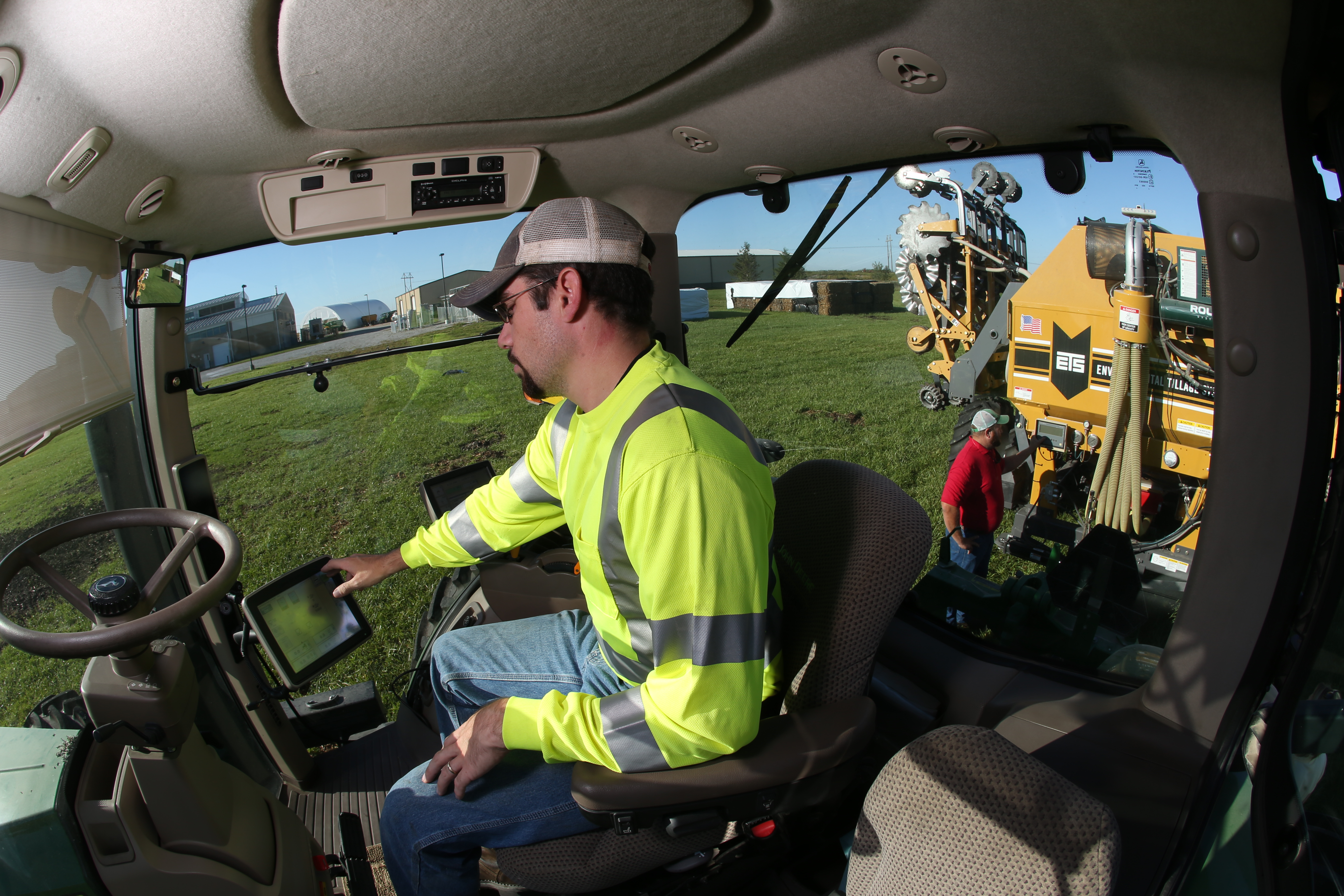
VOICES: The Digital Transformation of Agriculture
In 1959 the Iowa State College of Agriculture and Mechanic Arts was officially renamed the Iowa State University of Science and Technology. The focus on technology, both in name and in purpose, has empowered Iowa State University to be a leader in innovation resulting in a range of research patents and inventions from the first round baler to the first binary computer.
The Iowa State inventors of the first computer likely never imagined how their technology would empower today’s digital transformation of agriculture. Today over 50 percent of Iowa row crops are planted using digital computers and global positioning systems (GPS) auto-steering systems. Over 40 percent use site-specific variable rate management of fertilizers. These precision agriculture tools have helped lower the cost of production, improve machinery efficiency and increase yields while also increasing the sustainability of agriculture.
The widespread growth of cloud computing and the availability of site- specific agricultural data has led to a transition from precision agriculture to digital agriculture. Digital agriculture has brought a new focus towards data analytics and modeling, which enhances our depth of knowledge in agricultural production. Unmanned aerial vehicles (UAVs) and high resolution aerial imagery are an example of an immediate impact. With today’s UAV technology we can assess individual plant health during the growing season and quantify the impact of production practices and weather on plant-by-plant productivity. At a macro level this helps individual producers incorporate agronomic changes and site-specific management into their continuous improvement process. In the future this technology opens the door for plant-by-plant management and early detection of yield-limiting factors.
The growth of digital agriculture is also an opportunity for Iowa State to train the future generation of leaders in this field. Success in digital agriculture requires training in traditional agricultural fields blended with expertise in data science, machine learning and information tech- nology. Iowa State is actively preparing our students to be successful in today’s agriculture by infusing technology throughout our classrooms. We do this through a hands-on approach to education. Our students learn about the fundamental science behind new technology while also enhancing their confidence in using technology to solve real-world challenges. Additionally, departments across Iowa State have partnered together to ensure that our curriculum is adapting to the growing needs of data science in our graduates.
We also are delivering value back to the community through an integrated approach to research, extension and outreach in digital agriculture. Educational efforts include helping growers understand the use of crop modeling tools for yield forecasting, demonstration of UAV technologies for crop scouting and the use of data analytics to improve crop input selection. Most importantly, Iowa State is providing education on the need for data security and privacy standards to ensure producers protect current and future opportunities in the digital agriculture industry.
We look forward to future growth of digital technologies in agriculture and to demonstrating we are the Iowa State University of Science and Technology through our actions and incorporation of data analytics, UAV innovations and crop modeling into all aspects of our university mission.



